The ghosts of war continue to haunt Sri Lanka in one form or the other. Now it has come as US-sponsored resolution at the 19th session of the United Nations Human Rights Council. The resolution is also backed by France and Norway that once acted as ‘facilitators’ in the peace process between the Government of Sri Lanka and the LTTE. Moved on 06 March 2012, the resolution placed three requests for Sri Lanka:
- To “implement the constructive recommendations made in the report of the Lessons Learnt Reconciliation Commission” (LLRC) and to “initiate credible and independent actions to ensure justice, equity, accountability and reconciliation for all Sri Lankans.”
- To “present a comprehensive action plan as expeditiously as possible detailing the steps the Government has taken and will take to implement the LLRC recommendations and also to address alleged violations of international law.”
- To “accept, advice and technical assistance from the Office of the United Nations High Commissioner for Human Rights and relevant special procedures mandate holders on implementing the above-mentioned steps, and requests the Office of the High Commissioner to present a report on the provision of such assistance to the Human Rights Council at its 22nd session”
There are two aspects to the entire debate: one is fixing accountability for excesses committed by the Sri Lankan forces during ‘Eelam War IV’; and the other is the way forward in the form of post-war reconciliation in the island.
Colombo is uncomfortable with both. The Sri Lankan government argues that the problems should be dealt with internally and any solution has to be “home grown”. It cites steps taken so far in this regard. On accountability the Army has appointed a Court of Inquiry as an initial fact-finding mission. For reconciliation the President-appointed LLRC has already submitted its report late last year and the government is in the process of implementing its recommendations. To Colombo, any UN action “would only lead to derailing the ongoing reconciliation process that has been put in place by the government.” Some in the regime go to the extent of arguing that “If we submit to this resolution, Tiger terrorists will raise their head again.”
But the underlying point made by the sponsors of the resolution is that the objective behind the move at UNHRC is not to condemn Sri Lanka but to “sow the seeds of lasting peace.” It is pointed out that the “real reconciliation must be based on accountability, not impunity.” The Court of Inquiry appointed by the Army is considered “too late and too little”. Since it is not independent, its findings may not be impartial. The LLRC contained both positive and negative aspects. On positives, it talked about the need for demilitarisation, investigation of disappearances, apart from acknowledging existence of ethnic grievances; surprisingly, it supported devolution of powers to minorities, although did not spell them out. At the same time, it did not fix accountability for human rights abuses during Eelam War IV. For the collateral damage, the report reasoned it out as a result of LTTE action and military reaction. Most importantly, the LLRC did not give any action plan on the way forward either on reconciliation or devolution. It is only after the introduction of resolution in Geneva on 27 February that talks of roadmap have commenced. Sri Lanka seems to be bit more sensitive to external pressures than to the internal ones.
Given these factors, India’s role is important. In a similar situation in May 2009, India, along with China, Pakistan, and Russia, bailed Sri Lanka out from a Western-sponsored resolution at UNHRC. But what should India do now? Should it support the resolution as demanded by all parliamentarians from Tamil Nadu, or should it oppose the resolution keeping in mind the interest of bilateral ties with Sri Lanka? India’s dilemma is evident when the External Affairs Minister SM Krishna said, “Certainly we will take into account the overall relationship between India and Sri Lanka and the sentiments that are prevalent in our country.” However, in a letter to the present and ex-chief ministers of Tamil Nadu, from where pressure on the Center is increasing to act on the issue, Prime Minister Manmohan Singh sounded less dilemmatic: “We are engaged with all parties in an effort to achieve an outcome that is forward-looking and that ensures that rather than deepening confrontation and mistrust between the concerned parties, a way forward is found on issues related to accountability and reconciliation,"
This is the key. Neither ‘for’ nor ‘against’ the resolution is an ideal way out for the problem. New Delhi has to think out of the box at this juncture. Two options can be explored. One is to act as a ‘mediator’ between the sponsors and the state concerned – Sri Lanka – to rework on the Resolution and make it as a consensus document. For this, two aspects of the resolution – accountability and reconciliation – have to be dissected. The accountability component can be taken-off from the resolution completely and can be addressed separately. Colombo should be persuaded to clear the air on excesses committed by its forces. It could be through a non-partial investigation involving combination of local and international experts. Sri Lankans have to be involved in the exercise to gain acceptability in the country; outsiders have to be included for credibility at the international level.
On reconciliation, Colombo should be made to realise that military defeat of the LTTE was not the end in itself; only a political settlement that addresses grievances of minority communities can lead to lasting peace in the island. Unfortunately, this seems to be not on the priority list of Rajapaksa regime. In a recent interview, President Mahinda Rajapaksa outlined his thoughts on political settlement succinctly when he said, “We are keen on a sustainable political settlement. But it must have wide acceptance, especially in the context of the post-conflict situation.” When this pronouncement is taken seriously, writing on the wall is clear. At the maximum, what is on cards is some arrangement revolving around the existing 13th amendment. Through 13th Amendment, the island was divided into various provinces and granted some powers under Provincial List. However, the Provincial Councils always lacked sufficient powers – especially land, police and finance – to run their affairs in an efficient manner. In addition, Colombo wields immense powers of overruling any of Provincial decisions. Instead of strengthening the Provinces, the present government is planning to dilute the present arrangement further. Unless there is genuine power sharing, the Provincial Council arrangement will be mere eyewash. The best option is to go beyond 13th amendment framework as always insisted by India.
While this will take time to work out, Colombo should meanwhile seriously implement recommendations of the LLRC. There is nothing wrong in presenting an action plan on this to the UNHRC. In that case, the US should be persuaded to take this action plan as the final resolution and passed as a consensual document. The West also should understand Colombo’s constraints and compulsions.
In case Sri Lanka refuses to make international commitment on reconciliation; in case Washington insists on going ahead with the present resolution without any amendments, the second best option for India is to abstain from voting. It would convey a clear-cut message to Colombo: “Our friendship is very important, but that thrives on making commitments and, most importantly, seriously implementing them.” And, to the West, the signal would be “your resolutions will remain mere paper tigers as long as they are away from the reality.”
Published Date : 19th March, 2012


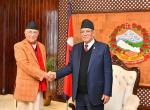
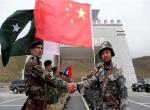

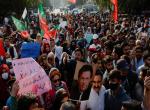
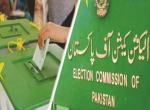
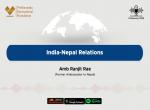

Post new comment